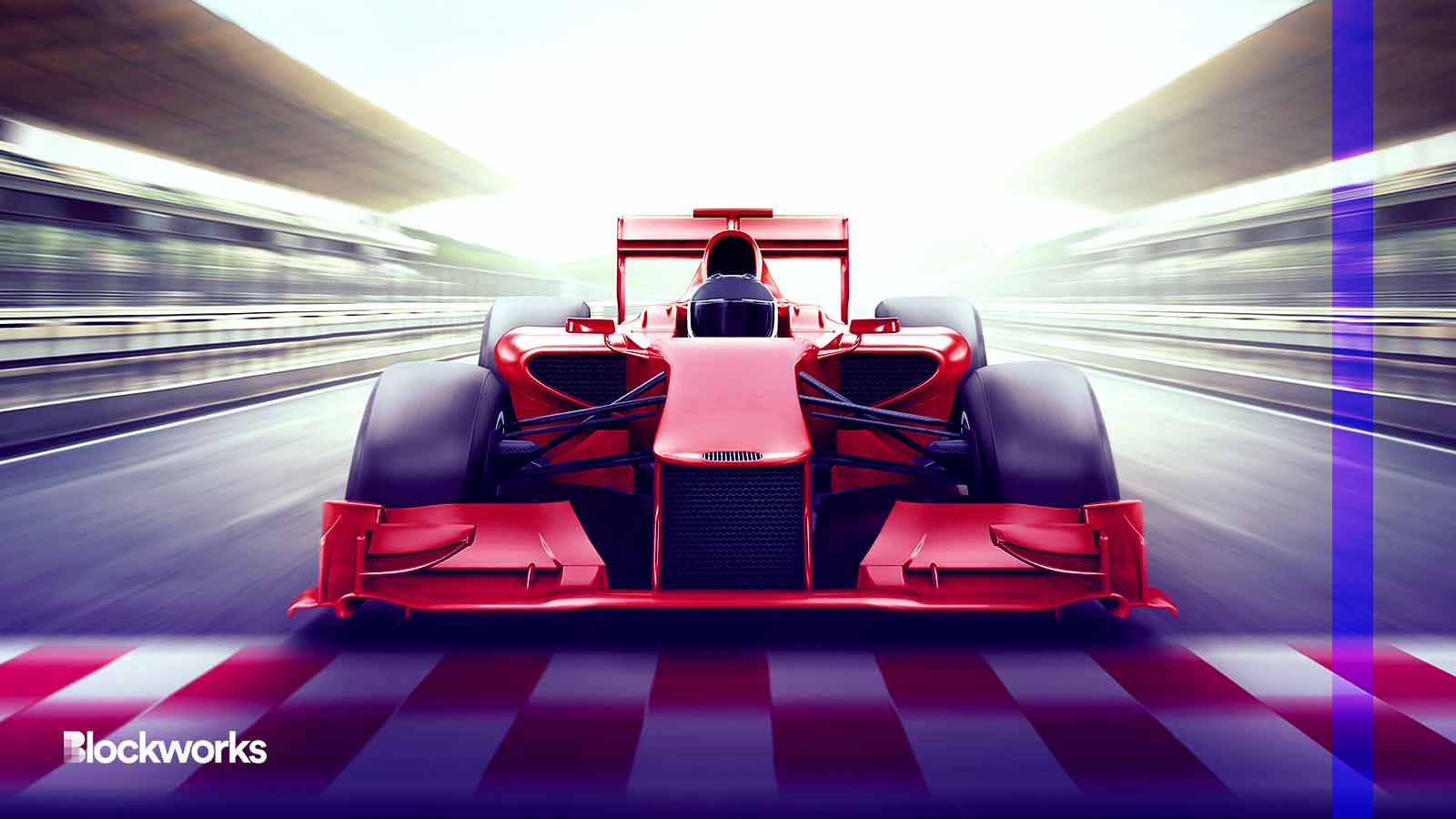Crypto Already Visible at Formula One Events. Now Cue NFT Tickets.
The largest ticket operator for Grand Prix events has partnered with an NFT marketplace and a web3 firm to launch a new platform

Image Craft/Shutterstock modified by Blockworks
A new NFT ticketing system is set to debut around this weekend’s Formula One event, as fans of the racing league continue to get a glimpse of crypto and its underlying technology.
Attendees of the Monaco Formula One Grand Prix, which runs from May 26 to 28, are able to receive an NFT ticket issued on the Polygon blockchain.
“The ticketing platform combines the robust security of Ethereum with the forge-proof uniqueness of NFTs to enhance ticket authenticity and prevent counterfeiting while providing fans with lasting digital mementos,” Urvit Goel, head of global business development at Polygon Labs, said in a statement.
The new NFT ticketing platform comes as NFT use cases have continued to emerge despite search interest in the sector plummeting from a year ago.
It is a result of a three-way partnership between NFT marketplace Elemint, Web3 firm Bary and Platinium Group, the largest ticket operator for Formula One Grand Prix events.
Platinium Group Chief Operating Officer Bertrand Labays told Blockworks in an email that the company has “a profound belief” in the significant role NFTs will play in the sports realm, calling Platinium’s decision to embrace blockchain technology “imperative.”
“We are delighted to introduce to our VIP clients this NFT ticket solution, which not only grants access to unparalleled experiences, but also transforms into truly unique memorabilia [that unlocks] perks — forever encapsulating the essence of this extraordinary moment,” Labays added.
The NFT tickets are set to offer other benefits in the future, such as post-race experiences or ticket discounts for future Grand Prix events.
Using NFTs in the ticketing space continues to gain steam.
Web3 company YellowHeart launched an NFT ticketing platform in October 2022, and tech startup TravelX more recently began helping Argentinian airline Flybondi offer NFT tickets to travelers.
Viewers of Formula One races have grown accustomed to crypto in recent years as large industry players have gravitated to the sport.
Crypto.com became the first crypto sponsor of Formula One in 2021 as part of a reported $100 million deal. The company then became a title partner of Formula One’s Miami Grand Prix race in February 2022 after signing a nine-year deal with the racing league.
Crypto.com Chief Marketing Officer Steven Kalifowitz previously told Blockworks that reaching “Super Bowl-size” audiences via live sports like Formula One was critical amid a fractured media landscape that has people watching content at different times.
Crypto exchange OKX revealed in May 2022 that it partnered with McLaren Racing in a multi-year deal worth “hundreds of millions,” a spokesperson told Blockworks at the time.
Later in the year, Formula One filed crypto-related trademarks for its F1 abbreviation, signaling potential Web3 plans.
Get the news in your inbox. Explore Blockworks newsletters:
- The Breakdown: Decoding crypto and the markets. Daily.
- 0xResearch: Alpha in your inbox. Think like an analyst.






